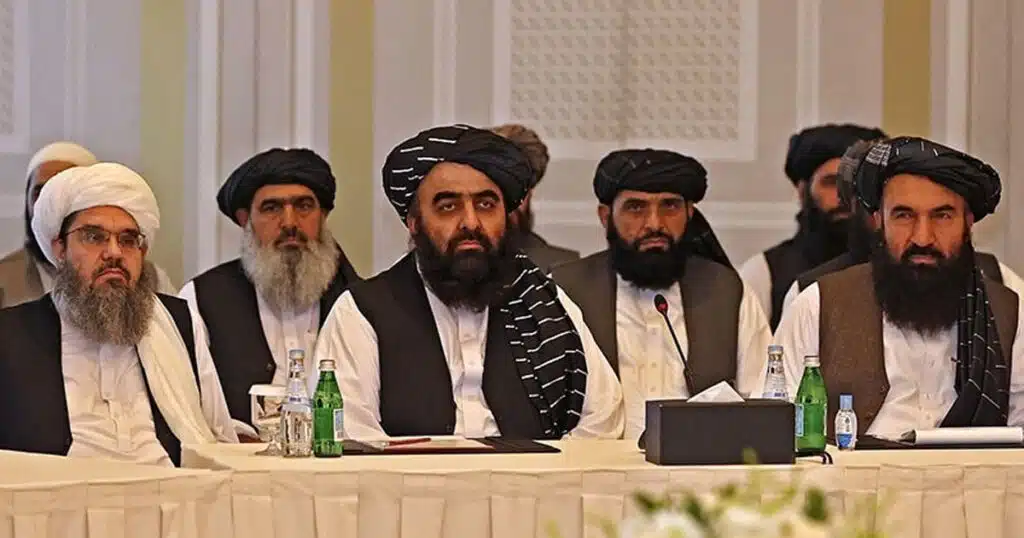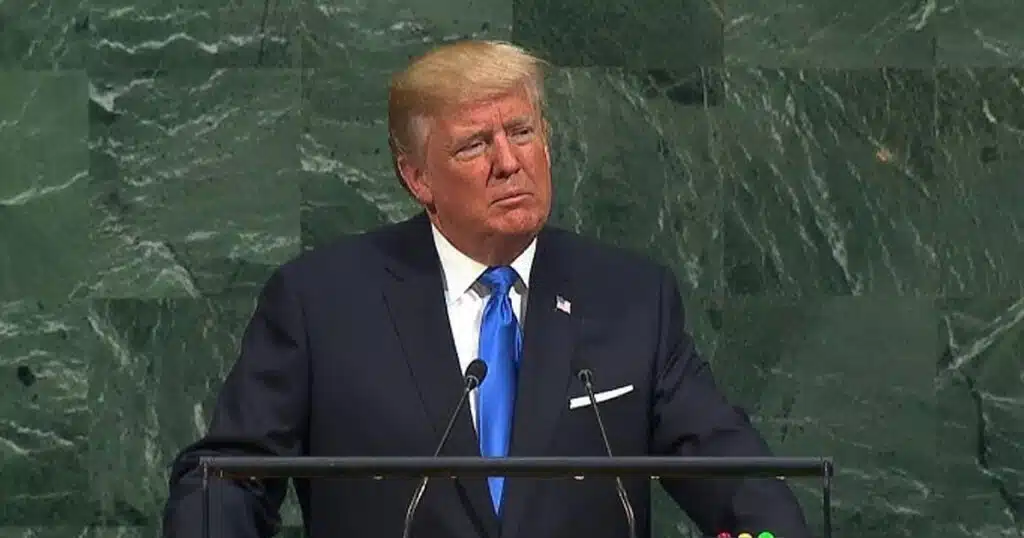
The Costs of the Afghanistan Withdrawal Debacle
In diplomacy and national security, as with personal relations and social life, credibility is a precious good. Once lost, it is difficult to recover. With its botched withdrawal from Afghanistan in the summer of 2021 – accompanied by falsehoods it disseminated to conceal its blunders and to meet its domestic political goals – the Biden administration dealt a blow to American credibility and undercut U.S. interests.
Russia seems to have paid particular attention to U.S. disarray in Afghanistan in the summer of 2021, just as it did to U.S. pusillanimity in Syria in the summer of 2013. President Barack Obama declined in August 2013 to enforce the U.S. red line that he had announced in 2012 against Syrian President Bashar al-Assad’s use of chemical weapons in the Syrian civil war. Instead of punishing Assad for violating the international laws of war in the summer of 2013, Obama invited Russia back into the Middle East to oversee the removal of Assad’s chemical weapons stockpile. Six months later, in February 2014, Russian President Vladimir Putin’s forces seized Crimea and substantial portions of eastern Ukraine.
An uncannily similar sequence of events unfolded under President Joe Biden. His administration’s hasty and mismanaged pullout of American troops and diplomats in August 2021 precipitated the fall of Kabul into the Taliban’s hands, squandering the stability and good will that America had established over the course of 20 years in Afghanistan. Six months later, in February 2022, Putin’s military rolled into Ukraine with the intention of bringing the entire country under Russia’s dominion.
No doubt multiple factors drove Putin’s decision to invade Ukraine in 2014 and his attempt to conquer it in 2022. He has long made known his designs on lands he regards as essential to Russia’s imperial ambitions. But if the Russian strongman was uncertain about how America might react to a blatant violation of Ukraine’s political sovereignty and territorial integrity, the Obama administration’s projection of irresoluteness in the summer of 2013 and the Biden administration’s demonstration of ineptitude in the summer of 2021 would have diminished Putin’s fear in the winters of 2014 and 2022 of American retribution.
Other countries were likely to have factored America’s Afghanistan debacle into their own calculations. With an eye to its oft-proclaimed goal of reuniting Taiwan with China, the Chinese Communist Party can’t help but have noticed America’s willingness in the summer of 2021 to abandon the Afghan people, American citizens, and thousands of Afghanis who worked alongside U.S. military personnel and State Department officials.
It is reasonable to assume, moreover, that the Islamic Republic of Iran’s ruling ayatollahs took the measure of the Biden administration from its bungling in Afghanistan. Tehran recently extracted from Washington a $6 billion ransom payment along with the release of five Iranians jailed in the United States for violating sanctions imposed on Iran in exchange for the release of five Americans unjustly imprisoned there. The deal is likely to encourage Tehran to maintain a supply of innocent Americans in captivity.
And how could a U.S. friend and partner such as Saudi Arabia fail to take into account American inconstancy? No wonder Saudi Crown Prince Mohammed Bin Salman demands an extravagant price – advanced weapons, a civil nuclear program, and formal security guarantees – from the Biden administration in exchange for normalizing relations with Israel. Facing a decent prospect of American fickleness, MBS wants to ensure something to show for a bold diplomatic step.
Extensive reporting and careful analysis by Jerry Dunleavy, an investigative journalist at the Washington Examiner, and Jeff Hasson, author, retired Army captain, and Afghanistan veteran, confirm the extent of the Afghanistan debacle and the magnitude of its ramifications for American diplomacy and security. In “Kabul: The Untold Story of Biden’s Fiasco and the American Warriors Who Fought to the End,” Dunleavy and Hasson provide a devastating indictment of the Biden administration’s planning, execution, and marketing of America’s termination of Afghanistan operations and offer a sobering assessment of the costs in lives lost, achievements forfeited, and national reputation sullied.
The authors contend that Biden’s miscalculations were part of a pattern of poor judgment in foreign affairs that goes back 50 years. Foreshadowing his shortsighted and cold-hearted stance toward Afghanistan as president in 2021, the 30-year-old first-term senator fought President Gerald Ford’s 1975 directive to rescue the thousands of South Vietnamese who had worked with American forces. Biden “strenuously opposed Ford’s evacuation plan and request for refugee resettlement funds,” according to the authors. “I do not believe the United States has an obligation, moral or otherwise, to evacuate foreign nationals,” declared the young senator. “The United States has no obligation to evacuate one, or 100,001, South Vietnamese.” Biden’s acumen did not improve with age. Robert Gates, who held senior national security positions in both Republican and Democratic administrations and served as secretary of defense while Biden was vice president, wrote of the future president, “I think he has been wrong on nearly every major foreign policy and national security issue over the past four decades.”
Biden erred in Afghanistan not in seeking to draw down American troops but by spurning consistent military recommendations and intelligence assessments that called for a more calibrated approach. According to the authors, “He was warned from the start of his presidency that a precipitous US troop withdrawal from Afghanistan – combined with the pulling out of US air support, the drop in airstrikes, and the retrograde of contractors necessary to keep the Afghan air force flying – would likely result in a swift Taliban advance and the disintegration of the Afghan military.”
It seems elementary, moreover, that once the president had decided to leave Afghanistan, the United States would fashion a plan to first evacuate its diplomats and civilians from Kabul; then bring troops back to Bagram Air Base, at the time the largest U.S. military base in Afghanistan; and, finally, turn the base over to the Afghanistan National Army. The Biden administration proceeded in the opposite order, unleashing chaos in the capital city and forcing U.S. troops to rely on Kabul International Airport – with its single runway and exposed, difficult-to-defend perimeters – to evacuate citizens.
The Biden administration was keen to blame its ill-conceived and rushed plan on the Trump administration’s 2020 Doha Agreement. But that was a smoke screen for Biden’s stubborn ambition to complete the withdrawal in time to boast of the achievement on Sept. 11, 2021, the 20th anniversary of the al-Qaeda attacks on the World Trade Center towers and the Pentagon. Contrary to Biden administration propaganda, however, the Taliban’s failure to comply with the Doha Agreement’s explicit requirements – not least preventing al-Qaeda and ISIS-K from using Afghanistan to threaten U.S. security – suspended the United States’ obligation to execute the withdrawal.
The Biden administration’s dissembling about America’s obligations under the Doha Agreement was not an isolated incident. Indeed, the catalog of what Dunleavy and Hasson do not hesitate to call the administration’s lies is breathtaking even by Washington standards.
For example, Biden repeatedly promised to leave some troops behind to fight terrorism but declined to do so. The Biden administration said that it would consult closely with NATO partners but made its withdrawal decision unilaterally and without European input. Secretary of State Antony Blinken told then-Afghanistan President Ashraf Ghani that the United States would stand by the Afghanistan people and hold the Taliban to its commitments, but the United States abandoned the former and shrugged off the latter’s perfidy and viciousness.
These and the many other untruths exposed by the authors illustrate the Biden administration’s placing the marketing of the Afghanistan withdrawal to the American people ahead of U.S. national interests, or rather, the administration’s equation of its marketing campaign with America’s national interest. The equation, however, tends to damage perception as well as interest.
This is what seems to have happened on August 26, 2021, when 13 U.S. Marines protecting civilians and maintaining order at Kabul International Airport’s Abbey Gate were killed – along with approximately 170 Afghanis – by an ISIS-K suicide bomber, who had been released by the Taliban from a detention facility at the Bagram Air Base abandoned by the United States. By the day of the suicide bombing, Dunleavy and Hasson report, the U.S. military had collected abundant evidence of an imminent terrorist attack at the airport. Several hours before the suicide bomber detonated his powerful explosive device, a Marine sniper team spotted a man within range who fit the descriptions. But the Marines were instructed not to engage. The refusal to act on substantial intelligence and to trust troops in complex and dangerous circumstances likely resulted in the deaths of 13 American heroes. It also subverted U.S. interests by harming perceptions of America around the world.
The restoration of American credibility is a national security imperative. Perception remains a crucial consideration, but it must be understood sensibly: The best way to appear competent and reliable is to be competent and reliable.
This article was originally published by RealClearPolitics and made available via RealClearWire.



